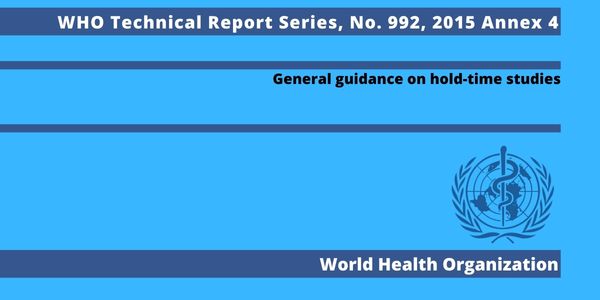General guidance on hold-time studies
1. Introduction and background:
Manufacturers should ensure that the products that they manufacture are safe, effective and of the quality required for their intended use. Systems should be in place to ensure that pharmaceutical products are produced according to validated processes and to defined procedures. Manufacturing processes should be shown to be capable of consistently manufacturing pharmaceutical products that are of the required quality and that comply with their specifications.
Good manufacturing practices (GMP) require that arrangements should be made to ensure that the dispensed raw materials and packaging materials, intermediate products, bulk and finished products are stored under appropriate conditions. Storage arrangements should not have deleterious effects on the subsequent processing, stability, safety, efficacy or quality of starting materials, intermediate products and bulk products prior to final packing. Maximum acceptable holding periods should therefore be established to ensure that intermediates and bulk product can be held, pending the next processing step, without producing results outside the acceptance criteria for the quality of the material. Normally, intermediate and bulk products should not be stored beyond the established hold time.
The choice of maximum holding period should be supported by relevant data. Studies may extend beyond the chosen maximum but it is not necessary to extend testing to determine the extreme limits at which failure occurs.
Click on the following title for full details: pdf
Table of Contents
WHO TRS (Technical Report Series) 992, 2015 Annex 4:



